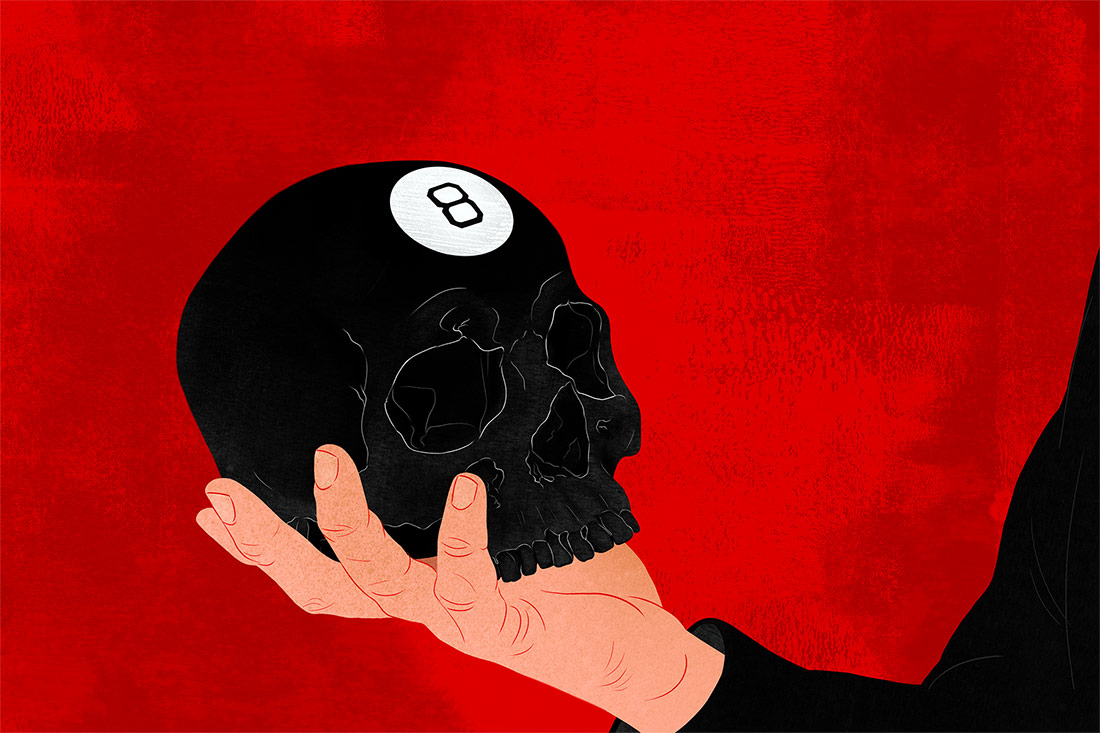The Heart of Paradox
Although I have yet to reach that level of cynicism/realism in the advice I give,5 my tune has certainly changed from my theatre school days when I sang, “Follow your passion!” #lifeisbeautiful #love #cantwaittograduate #justkiddingimdeathlyafraidofgraduating. Nowadays, in the post–theatre school grind, as a “working” actor, my tune (a little flat) warbles a cautious encouragement: would-be actors should examine the opportunities that await them upon graduation, and ask themselves if they find them to their liking. As far as I can see, the opportunities that await us in the theatre world are:
a) The Festivals
b) Urban theatre (often contemporary)
c) Regional theatre
d) Fringes or indie theatre
e) Being a maverick
And if we really want to be a somebody, a somebody who works relatively consistently (as one must do to make a living in the theatre), we need to succeed at a, b, or e. This is not to knock the value of c or d. It just seems that, to survive and thrive as a theatre artist in Ontario, a, b, or e is our best option.
So let’s look at ‘a.’
A consistent refrain among my peers during my time at theatre school was, “I wouldn’t mind spending a season or two at Shaw or Stratford, but I don’t want to make a career of it…” The insinuation being, presumably, that were we to make a “career” of working at these festivals, we would be stuck. Restricted from doing either bigger and better or smaller but more interesting things. What these things might be, we didn’t precisely know. They existed in the realm of vague notions. Of the bigger and better ilk, the notions wafted generally in the direction of film, TV, Broadway, Hollywood, or ideally, all of the above.6 For those of us too humble, smart, or scared for such grandiose dreams, “smaller but more interesting” probably meant urban contemporary theatre. The edgy, avant-garde, indie-but-still-totally-getting-paid-well-for-it kind. Regardless, our hazy notions (with varying degrees of rosiness) all consisted of avoiding getting “stuck” at a festival.
Stuck is for the middle aged and older. Stuck is stable. Stuck is boring. Stuck is for when we have some sort of steady monogamous relationship down the line. But that is down. the. line. We especially don’t want to be stuck while we are young, free, and unencumbered.
“Small towns and institutions are not for us!” we cried, with casual disdain, or vigorous disdain, or blithe indifference. And we figured, like, sure, we’ll take Ophelia, or Hamlet, when it’s offered to us, but we’re not going to spend our lives there. Plus: the political among us argued that the festivals stand as colonial institutions in an ever-diversifying Canada, telling primarily white stories, by primarily white actors, for primarily white audiences. We emphatically called for revolution and upheaval, because change, and change now, is necessary.
This isn’t to say that change isn’t occurring.7 Where the debate raged, amongst the ardently political, was the speed at which those changes are happening.8 When the white and well-meaning among us asked an Aboriginal theatre artist how we could help affect such change, the response was, “Well, you’re going to be the ones who end up working at these institutions.” This gave us pause. Critical of the institutions though we were, and as irreverent (with that special arrogance of youth) as we could be, we weren’t ready to vow never to work at the selfsame institutions we criticized. We knew, and upon graduating knew all the more acutely, that should we have the opportunity to work at a festival, we should find ourselves lucky. Aside from being employed for eight months, being paid enough to make a living, and performing in a big theatre six days a week, the texts of Shakespeare and Shaw pose an excellent challenge to the actor.9 And truth be told, it is difficult to work on those texts and not appreciate that they touch a vast spectrum of human experience.
-
- 5. Yes, inexperienced though I am, I am already being asked for advice from question-laden, trepidatious theatre tadpoles.
-
- 6. Basically: America.
-
- 7. The writing of Lisa Codrington and Hannah Moscovitch will appear on Shaw and Stratford stages, respectively, later this year.
-
- 8. i.e. “The festivals are implementing changes and all this fuss is unnecessary.” vs. “All this fuss is not nearly enough fuss and the changes are taking way too long.”
-
- 9. Plus, the festivals are where the “theatre elite” work. Aside from getting the opportunity to learn and work with said elite, the way a colleague’s eyes widen with surprise and admiration when you say you work at a festival is gosh darn validating.









Comments